It begins with just a few gentle flourishes from the orchestra before the honey-voiced singer launches into the chorus. Her words are instantly familiar to listeners, who sing along without having to search for the lyrics on their smartphones or strain their voices to remain in key. The song’s simplicity is its boon and its enduring message of softness and sentimentality its raison d’être.
More than 85 years after its release, We’ll Meet Again – made famous by singer Vera Lynn – continues to resonate with listeners, whether they experienced the second world war or not. In fact, as we head into the 80th anniversary of the war’s end, it is one song that is sure to be at the top of all British commemorative playlists.
While embarking on this next year of remembrance, it is important to question why this song echoes so resoundingly across time and space. Why is it that, after all these years, we continue to meet We’ll Meet Again again, and again and again?
Looking for something good? Cut through the noise with a carefully curated selection of the latest releases, live events and exhibitions, straight to your inbox every fortnight, on Fridays. Sign up here.
Written by Ross Parker and Hughie Charles, We’ll Meet Again was first recoded by Lynn in 1939. Its chorus is as follows:
We’ll meet again, don’t know where, don’t know when, but I’ll know we’ll meet again some sunny day.
Keep smiling through, just like you, always do, ‘til the blue skies chase those dark clouds far away.
In the early war, Lynn performed the song – as well as other wistful tunes – at palladiums across the country and over the radio. She gained a reputation as a “sweet singer of sweet songs” and was soon after bestowed the moniker “the Forces’ sweetheart”.
By 1941, Lynn hosted her own BBC radio show named Sincerely Yours, described by Radio Times as a “letter in words and music” to fighting men. After reading messages from munitions girls to their husbands and congratulations to new fathers in the military, Lynn signed off the show crooning We’ll Meet Again, authenticating the song as her signature.
Throughout the remainder of the war, she performed the song over the radio and in film (including in the fittingly titled We’ll Meet Again in 1943) as well as in concerts as far afield as Myanmar.
However, the song was not met with universal acceptance. Some, including parliamentarian Earl Winterton, believed that Lynn’s song harmed soldier morale, arguing that its emotional message deflated appetite for the war. Diarists for Mass Observation – a social research project launched in 1937 that collected journal entries from volunteer citizens – repeated this idea. One diarist claimed that Lynn’s songs were “too intimate for broadcasting” and another called her catalogue “carefully written sob stuff”.
But just as some criticised, others came to her defence. Gunner A. E. Buckeridge, for example, scorned Winterton in Union Jack magazine for taking it “upon himself to decide what the men should like”. Frank Owen of the South East Asia Command similarly wrote that Lynn’s crooning “really hits the heart” and thanked her for ameliorating “the abiding home sickness” of soldiers.
The debate did not centre on whether We’ll Meet Again was sentimental. Rather, it questioned if such sentimentality helped or hindered fighting men.
By 1945, many listeners sat in the former camp, contending that We’ll Meet Again eased war’s hardships by reminding listeners of their home and humanity. In fact, it would be the song’s ability to do this that would propel its popularity to new heights in the following decades.
Post-war resonance
Following the end of hostilities, the ballad proliferated across media, genres and audiences. It was referenced in a wide range of films and television series, including Dr Strangelove (1964), Muppets Go to the Movies (1981) and even Stranger Things (2016).
Other musicians covered the song too, including Frank Sinatra and Johnny Cash. Pink Floyd’s song Vera (1979) even contained the lyrics: “Does anybody here remember Vera Lynn? / Remember how she said that we would meet again some sunny day?”
The song was also used in war-related commemorative events and political addresses. This includes Queen Elizabeth II’s April 2020 broadcast that discussed the burgeoning COVID crisis and asserted: “We will be with our friends again; we will be with our families again; we will meet again.”
So, what is it about this song that has maintained such longevity in the national consciousness?
In many post-war recollections, veterans especially praised the song’s emotionality. In a 1996 oral history interview, for instance, veteran George William Ledger remembered how grown men were brought to tears after listening to Lynn. He recalled that “when Vera Lynn got up and sang on that stage … it was quiet, you could hear a pin drop”. He added that her songs were especially powerful because they “dwelt on the emotions of people”.
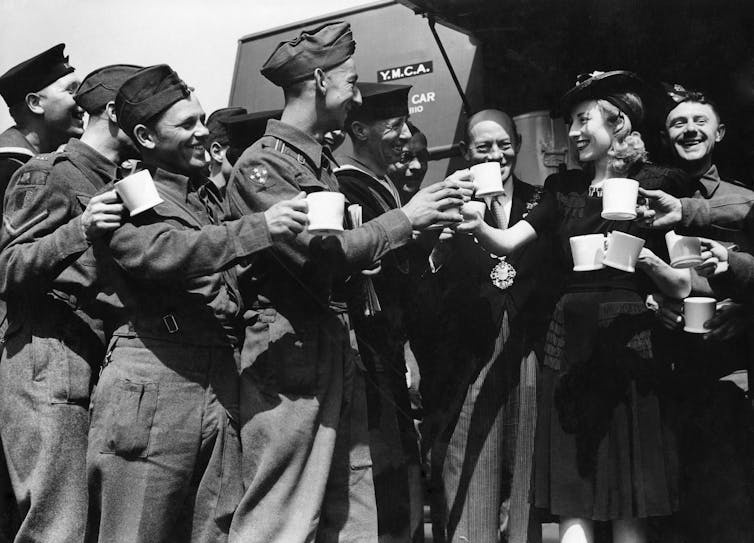
Trinity Mirror / Mirrorpix / Alamy Stock Photo
In select accounts within the BBC’s WW2 People’s War Project, this theme was reiterated. One contributor wrote that Lynn was so popular because she “entertained us … with her very emotional songs”. Another writer claimed that We’ll Meet Again raised the morale of the troops “who knew how near was a terrifying death”.
Even comments made on the song’s YouTube page reference its emotional resonance, with one user writing: “Played this song for my dad over skype (81) years old with Alzheimer’s. He knew word for word with tears streaming. Bless him.”
These recollections serve as a poignant reminder of the power of sentimentality and giving people the permission to emote during times of struggle. The song – both during the war and after – provided safely contained moments to embrace softness.
Typically, when you think of a “war song”, you might be tempted to think of a military march, full of brazen boasts of strength and stoicism – both of which are characteristics commonly tied to narratives of war and heroism.
But the enduring resonance of We’ll Meet Again underlines the timeless testament of another set of heroic virtues: softness and sentimentality. The song demonstrates that in times of incredible hardship and trauma, all people require spaces to ache, mourn and feel.
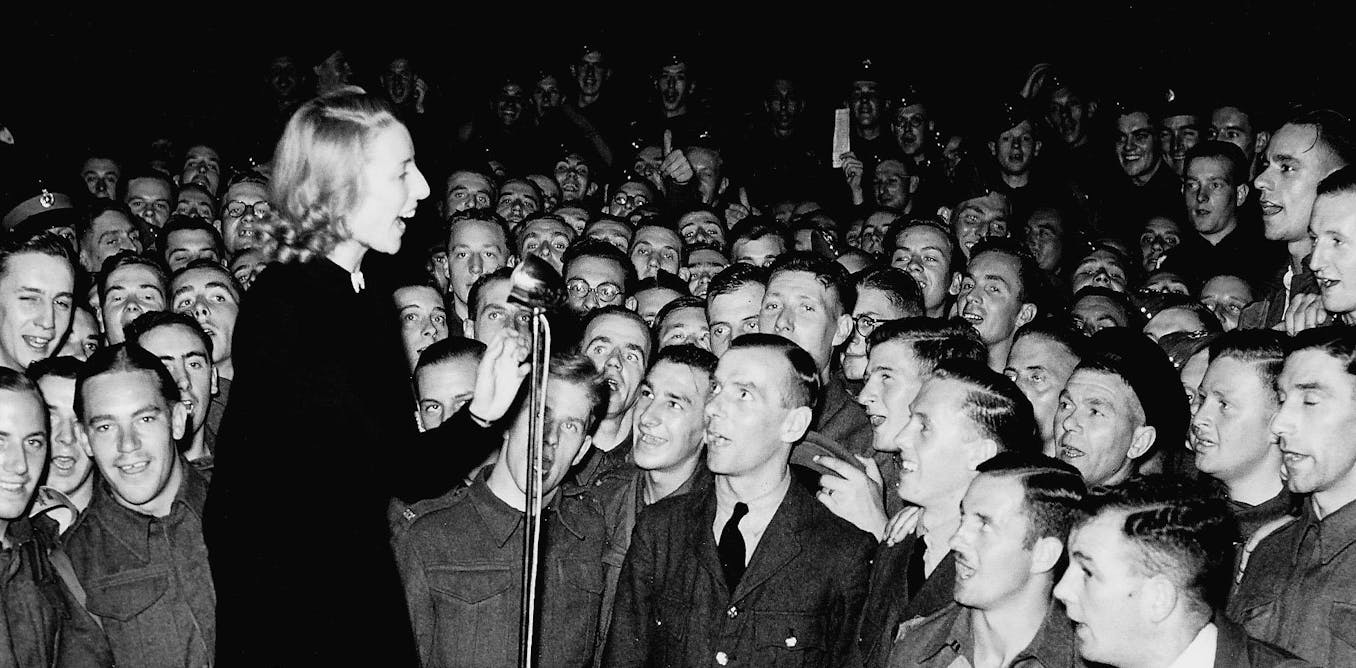
The post “The timeless appeal of We’ll Meet Again underscores people’s need for sentimentality” by Clare V. Church, Fellow of the Institute of Historical Research, School of Advanced Study, University of London was published on 05/06/2025 by theconversation.com




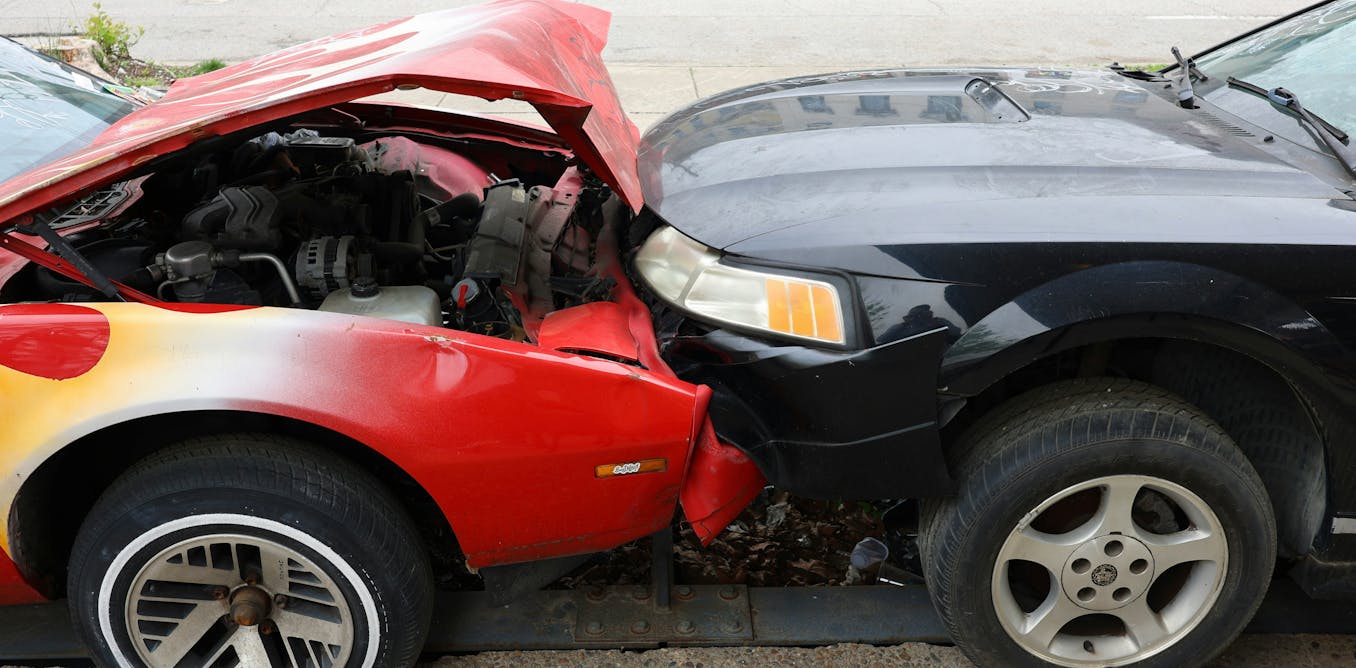


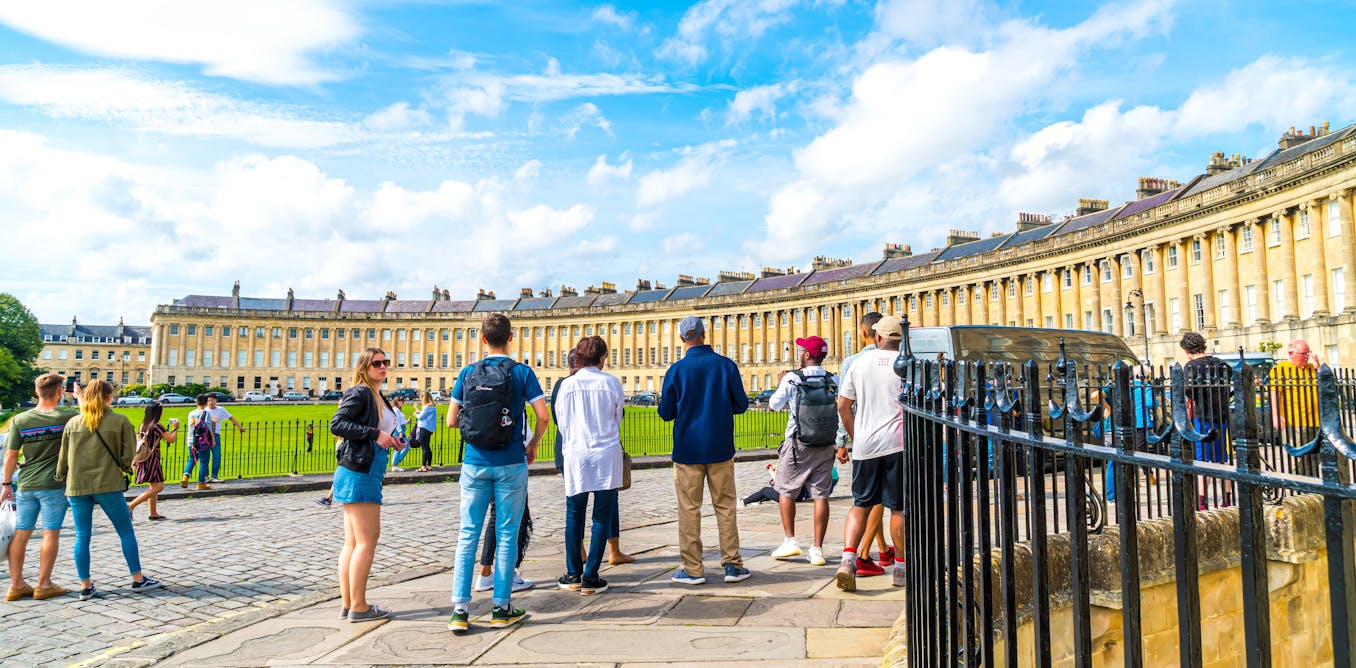


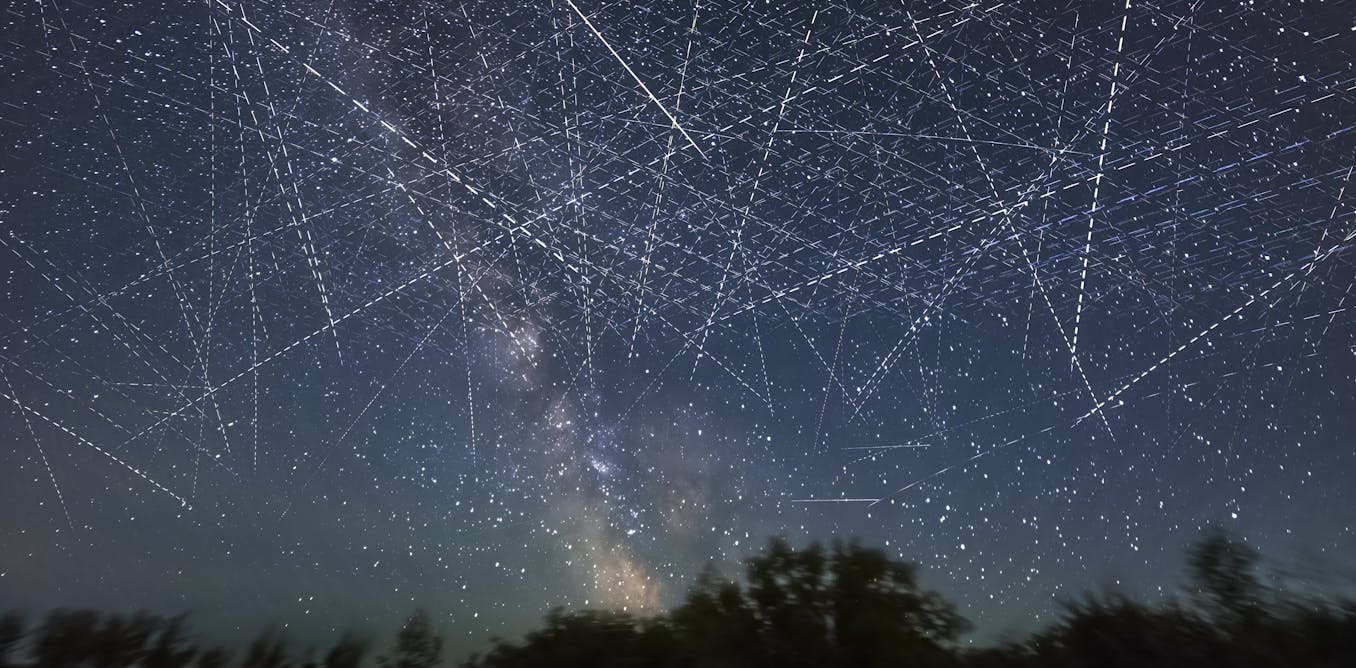

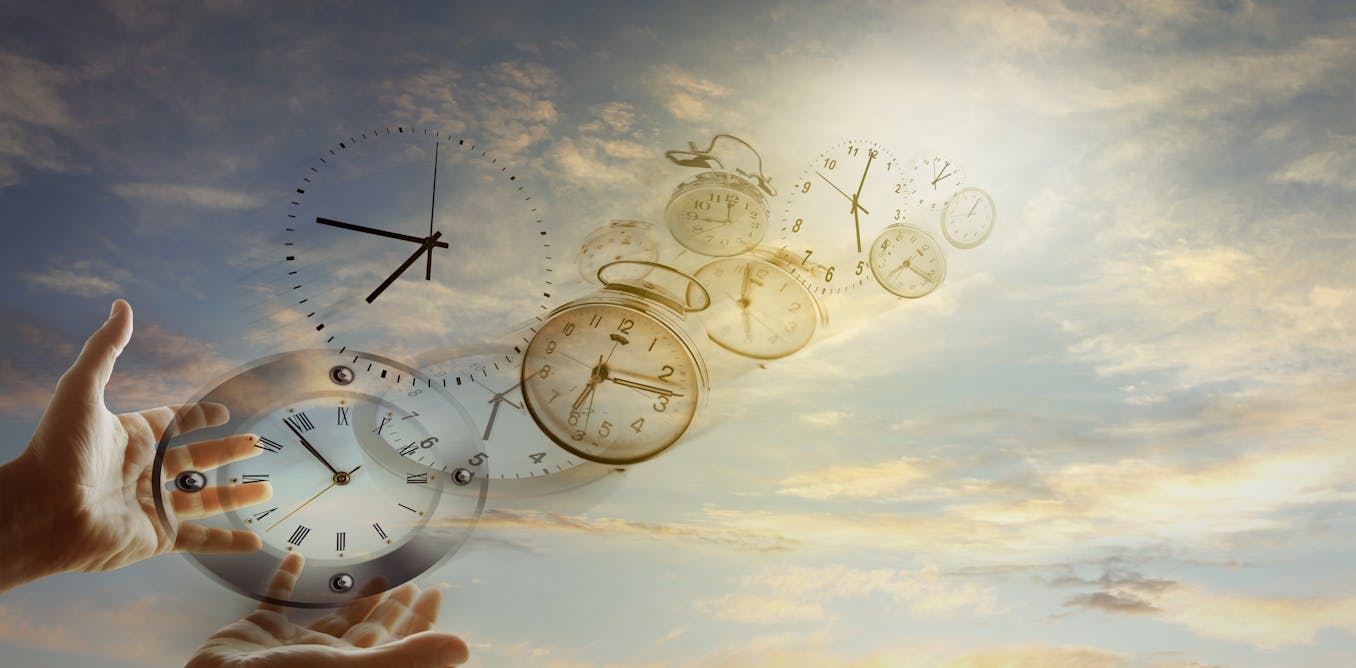





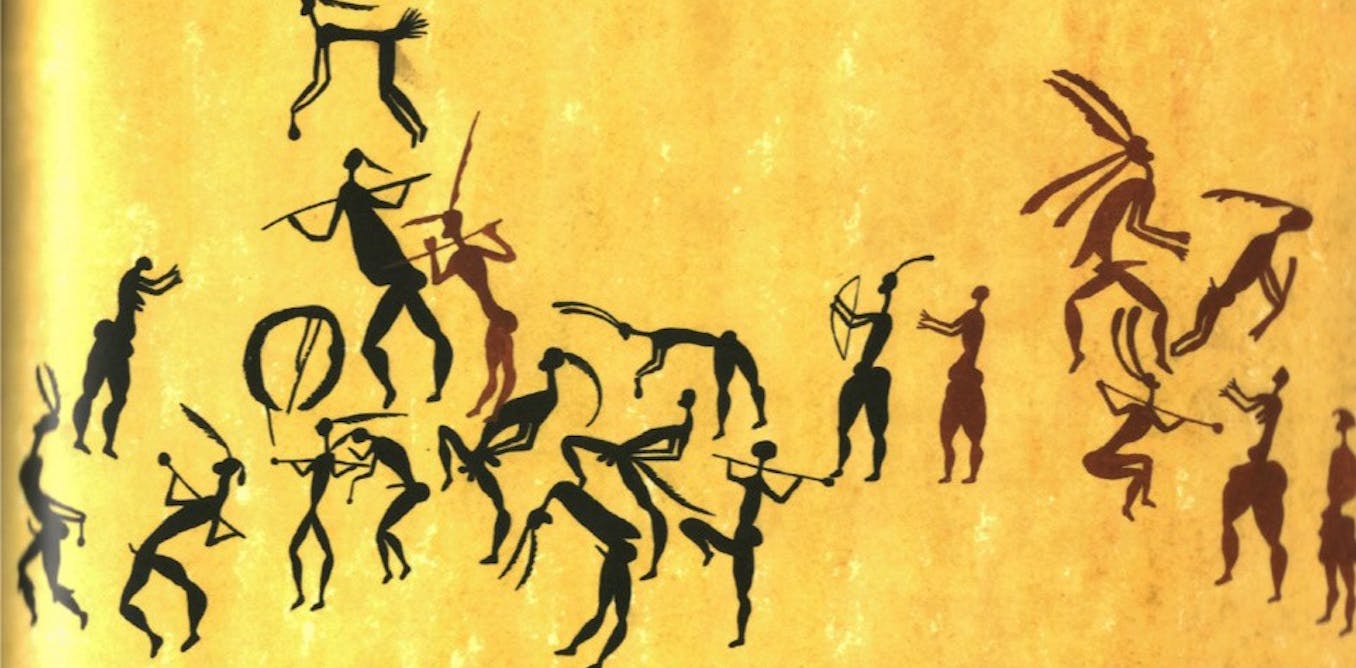



















Leave a Reply